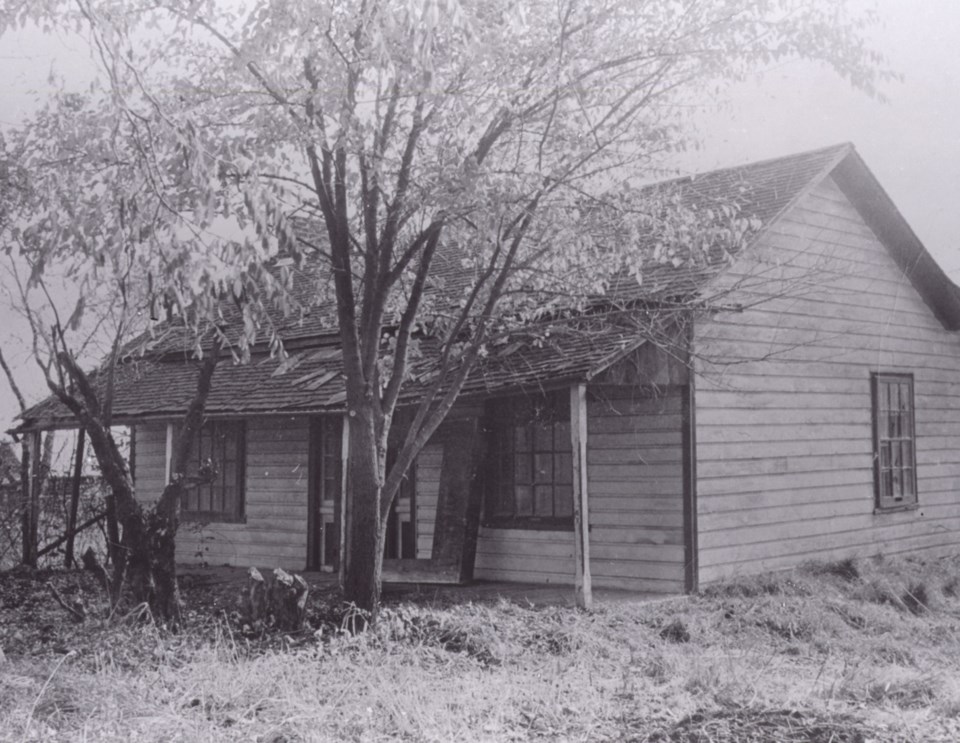The Tragic Death of Joseph Orchard
In an earlier Postcard Memories we met Napoleonic Wars veteran and Innisfil settler Joseph Orchard. Through hard work, he and his wife Mary made good on Canada’s promise to establish a thriving farm. Life was good.
Sadly, the story doesn’t end on a happy note.
On April 3, 1865, a train passing on the tracks running past the Orchard homestead began frantically blowing its whistle. Joseph, who was enjoying breakfast at the time, pulled his aging bones from the table to see what the commotion was all about. He trudged out onto the porch, pulling suspenders over bony shoulders. The crew of the passing train pointed at Joseph’s house, and even over the chugging of the steam engine he heard their desperate cries of “fire!”
That’s when Joseph saw it. Neck straining, he saw flames dancing eagerly across the shingle roof. Even at 69 years of age, Joseph was a decisive man of action. He raced to the barn as fast as his rheumatic legs would allow and returned moments later carrying a ladder. Mary pleaded for him not to go up onto the roof. She knew, even if Joseph refused to accept it, that he was no longer a young man and was incapable of such exertions.
Nonsense, he assured her, as he began climbing the rungs and ordered her to fetch pails of water. Reluctantly, Mary hiked up her skirt and ran for the well.
When she returned, a scream caught in her throat. Lying beside the ladder, his neck twisted at an impossible angle, was her Joseph. He slipped from the roof. Mary raced to his side, a rising tide of panic threatening to overwhelm her. “She called his name, tried to rouse him, but alas, never more would those dear kips speak to her. He was dead,” wrote their son, Robert, shortly after the tragedy.
Mary kneeled by Joseph and screamed, her voice hoarse, until neighbours, seeing the plume of smoke rising on the horizon, raced to offer assistance.
Robert, who lived on an adjacent farm, was among the first to arrive. “I almost saw mother wild,” he recorded. “I never saw her grieve so violently.”
She knew that Joseph’s death was a tragic end for a life well-lived.



